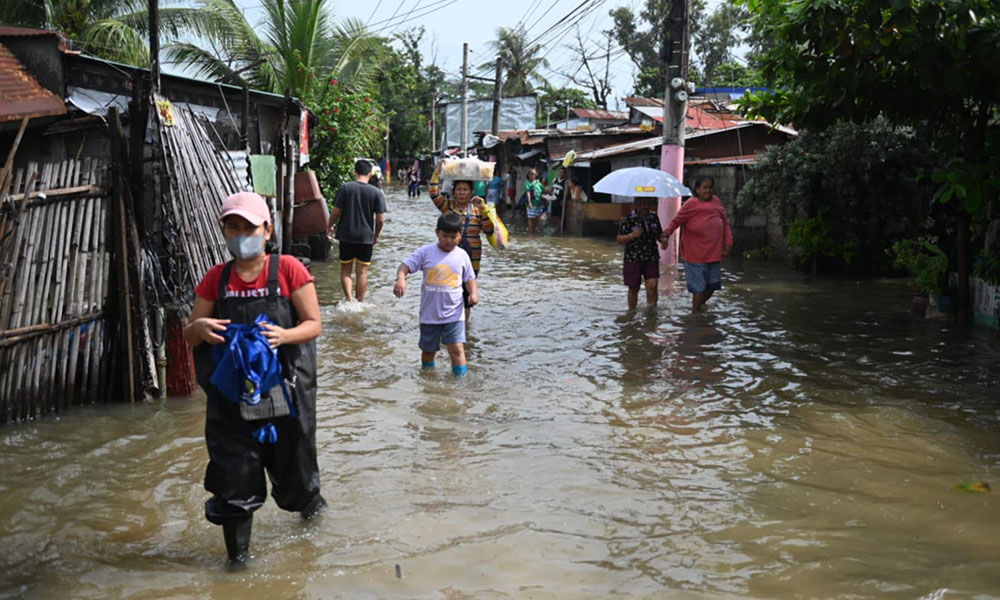A bold move for a drug-free Calasiao
 By Eva C. Visperas
By Eva C. Visperas
COMING back from a long weekend after All Saints’ Day and All Souls’ Day usually means slow Mondays, sleepy offices, and half-hearted attempts to return to reality.
People are still thinking about family reunions, cemetery visits, and the short but well-loved break from work.
But in Calasiao town, that Monday morning was anything but routine.
Just as the flag-raising ceremony ended — the kind every LGU performs almost automatically every week — Mayor Patrick Caramat dropped an announcement that caught nearly everyone off guard: every single municipal employee, including the mayor himself, would undergo a surprise mandatory drug test — right there, right then. No warnings. No excuses.
Eight hundred fifty-four employees, from the lowest casual worker to the highest elected official, were tested.
Not because of a scandal. Not because of a whistleblower. Not because of a complaint.
But because the mayor wanted one thing crystal clear: public office must be drug-free — not only in slogan, but in practice.
And that, in this country, is a rare kind of leadership.
Let’s not pretend the drug problem disappeared when the national rhetoric shifted. Just last month, PDEA and PNP authorities seized 895 kilos of shabu worth ₱6.1 billion in Labrador — followed by another 125 kilos worth ₱850 million in Bugallon. In less than 48 hours, nearly a ton of illegal drugs — ₱6.9-billion worth — was confiscated in one province alone.
If that doesn’t make every mayor, governor, and agency head nervous, it should.
The threat is still there — quieter, smarter, more discreet. Which makes Calasiao’s move even more important. When the problem evolves, leadership must evolve with it.
Mayor Caramat didn’t wait for a scandal. He didn’t wait for a failed drug test to make headlines.
He didn’t wait for damage control. He acted before the problem could take root.
That’s the difference between governance and reaction. Between leadership and performance.
Between true accountability and public relations.
Every government office handles money, documents, permits, benefits, vulnerable citizens, and public trust. If even one compromised employee is involved in drugs, you don’t just get a workplace problem — you get a governance problem.
Government loves to build roads, bridges, streetlights, plazas, and tourism parks. But what good is physical infrastructure when human infrastructure is broken?
A town hall is not clean if the people inside it aren’t.
A public office is not respectable if the workers cannot be trusted.
A leader is not credible if he demands accountability — but refuses to model it himself.
Mayor Caramat took the test in front of everyone. That alone sets him apart from many who love the podium but fear the mirror.
Let’s be honest — some mayors will say they support “drug-free governance” but will never dare test their own employees, much less themselves. Why?
Because drug testing filters out not just users — but hypocrisy.
A real leader does not say “test them.”
A real leader says “test us — including me.”
If we expect drivers, teachers, police officers, pilots, and factory workers to undergo drug testing, why should government officials — who control budgets, laws, and public service — be exempt?
If 854 employees can do it in one morning, so can any city/town hall, capitol, government office, or state university.
The question now is no longer “Is it possible?”
The question is: Who else has the courage to do it?
The employees themselves supported the move — a sign that a drug test is not a violation of dignity, but a protection of integrity.
As one employee said: “At least the public knows we’re clean. And that matters.”
Yes, it does. Trust is built, not demanded.
If your town has money for floats, concerts, ribbon cuttings, and tarpaulins, then it has money for drug testing.
If your office requires clean records, then it should require clean workers.
If your leadership is real, then accountability should start from your chair, not from the lowest-ranking job order employee.
Drug-free governance is not about politics — it is about safety, dignity, and public trust.
Calasiao has set the bar.
The only question now is: Who will follow — and who will hide?







